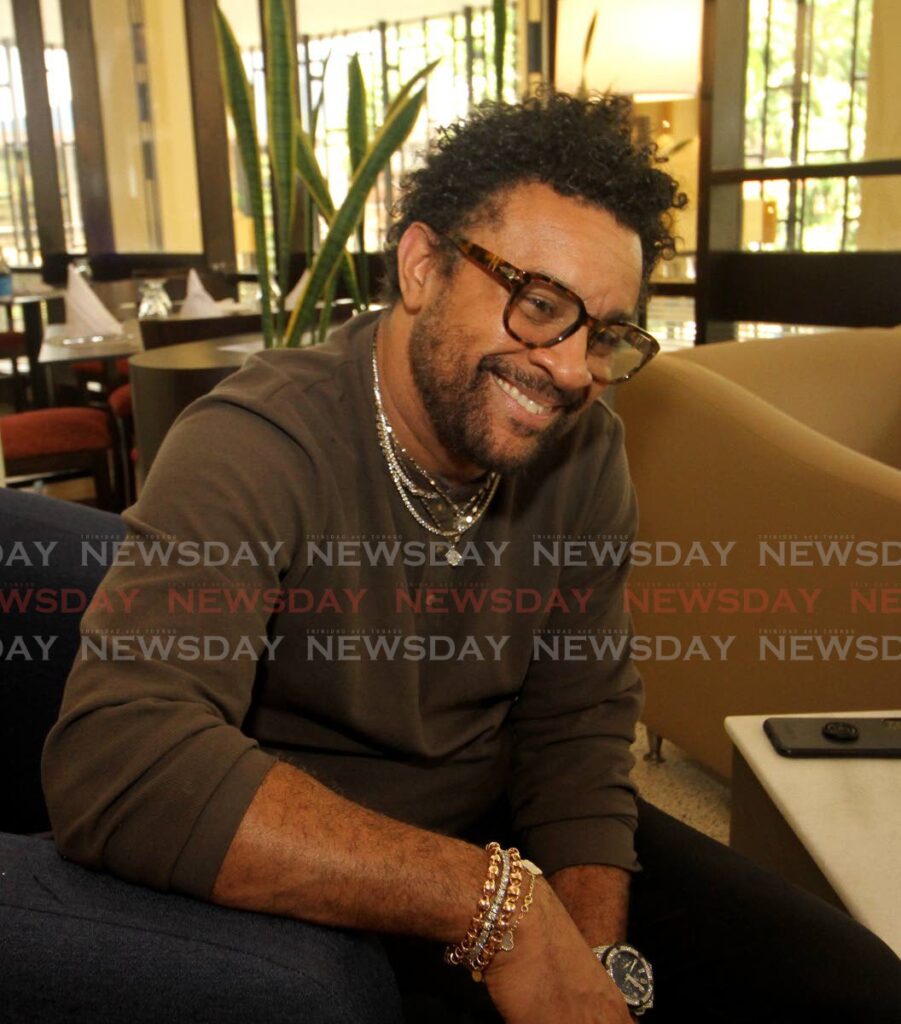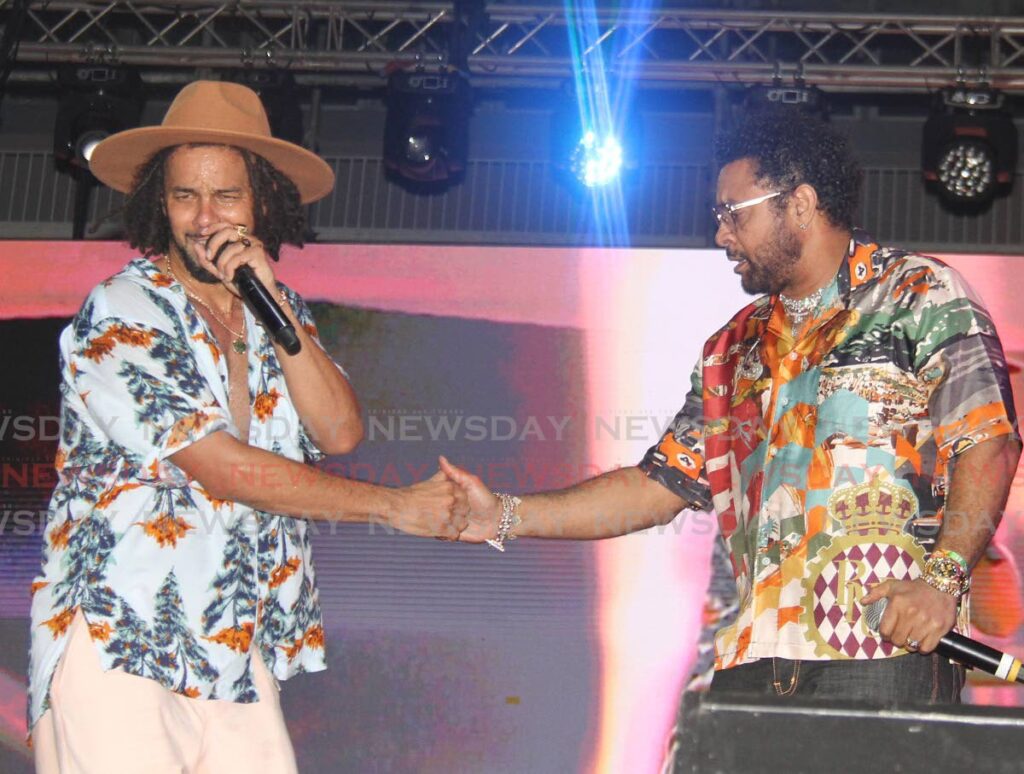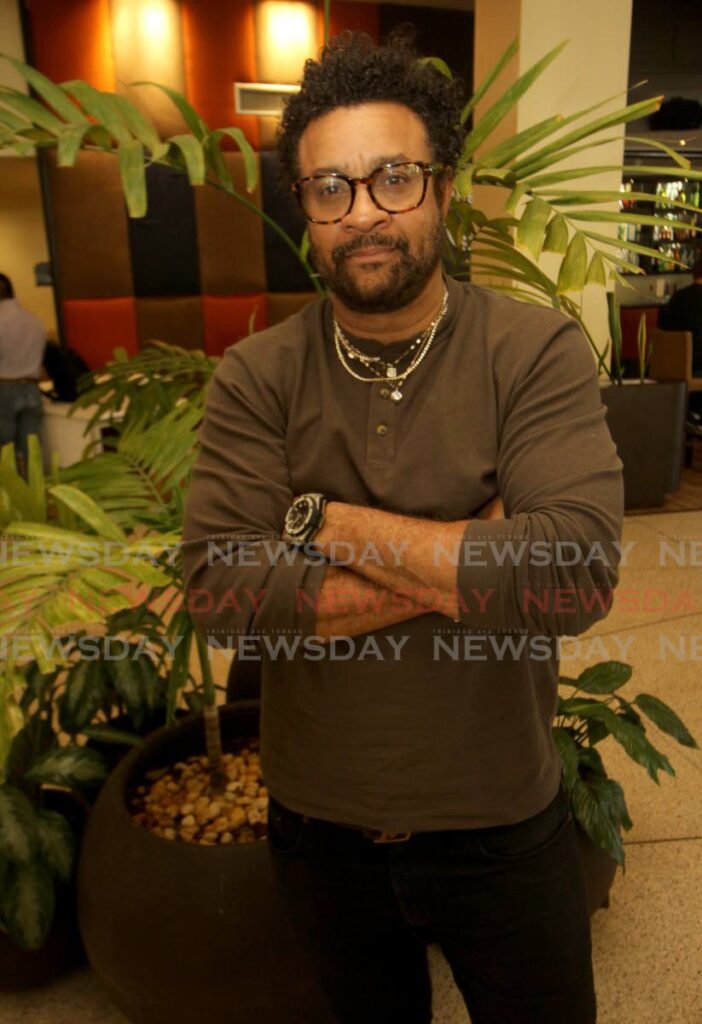Shaggy's vision: Caribbean music must go global

Orville 'Shaggy' Burrel is no stranger to Trinidad and Tobabo and certainly no stranger to soca.
Growing up in Jamaica, he said, soca and calypso were part of the fabric of his culture as all the TT artistes went to Jamaica for Carnival there, so he considers himself a Caribbean artiste.
So not only is he a lover of soca, but he has been occasionally contributing to the music, starting with Xtatik’s 1998 hit Toro Toro, where Shaggy ran “charge” into the soca scene, adding his vocals to that of Machel Montano.
This year, he’s back with Mood, featuring Kes the Band, a favourite for the Carnival season, and the first release from his new EP, In the Mood, which is expected to be released on March.
Shaggy said he has been making music with the band for some time as Kes was on Shaggy’s Calabash Riddim with Can’t Wait (2013). They talked about working with each other but did not want to force it. They wanted it to be the right song. And that song came when Shaggy was writing his 2021 Christmas album, Christmas in the Islands, during the pandemic.
“It just sounded more like a soca, Carnival, feel-good kind of song. I said, ‘You know, this really sound like Kees (Dieffenthaller, lead singer with Kes The Band), with his melodic style.’ So I brought it to him and he said, ‘This song is really bad. Let’s do it.’

“With the Kees song, once we finish it and I hear it and I’m thinking about how I’m going to market it, ah say, ‘Why don’t I just use this opportunity to do a soca project?’”
With that in mind, he refreshed and updated several of the songs he never released, and sent them to artistes he thought would fit the vibes of each track.
His next release off the EP, Don’t Run, with St Vincent's Skinny Fabulous (Gamal Doyle), he had for about six years but never did anything with it. He just felt it was the right time for the songs.
“It just makes sense. First everywhere was locked down and we’ve been having carnivals everywhere, but nowhere feels like a carnival because the party central has been closed. Now that the party central has been opened, the world can now party again. There’s no party like the Trinidad experience – the soca experience, a Trinidad Carnival.”
The six tracks are collaborations with Skinny Fabulous, Kes the Band, Bunji Garlin, and Jamaican dancehall artistes Future Fambo, Noah Powa and Konshens. At that point, he said, he realised he had too many men on the album and asked Patrice Roberts to be on a track with him, to which she agreed.
Shaggy told Sunday Newsday he is not targeting any particular season with the EP, but the tracks are “Carnival infused” as he believes hybrid or fusion songs are the direction in which Caribbean culture must go.
“The thing about soca music is it has always been very seasonal. What I love about this song (Mood) is it doesn’t lend itself it any particular season. It’s a hybrid that will be able to play globally on a year-to-year basis.
“Whatever feel-good vibe you get from Trinidad and being in the soca and the Carnival, you’d love for that to spread throughout the rest of the year. So I find it crazy people want to pigeonhole the format.”
He said he cannot make the style of music reggae legends like Bob Marley or Dennis Brown did. They were masters of their style and their songs are timeless so he cannot do it better and no one would want to listen to him try.
“They (newer soca artistes) can’t do exactly what people like Iwer George, Sparrow or these guys have done and be better than those guys. These guys were masters of their craft. For them to make their mark, they have to create their own hybrids to make a new mark. If you don’t have a hybrid, you’re stagnant. That is how the culture grows.”
He said he has an international platform and is not focussed on collaborating with “foreign superstar” acts. Instead, he is happy to help newer artistes showcase their talent.

Referring to the recently released Electric Boogie with himself, Marcia Griffiths, the 1990s dance music icon, and three other new Jamaican artistes, which was originally made for Jeep's 2023 Super Bowl commercial for its new hybrid Jeep 4xe he said, “We used the platform to showcase three new artists as well as Marcia Griffiths, who is an icon. If we’re not doing that with our platform as artists then I don’t see what’s the sense.”
This has been the way he has operated for years.
He noted that when he was "in his prime" he showcased relatively unknown artistes. He did It Wasn’t Me with Jamaican artiste Rik Rok (Rickardo George Ducent), and Angel and In the Summertime with Barbadian Rayvon (Bruce Brewster). More recently he did I Need Your Love with Congolese-Swedish singer Mohombi ( Moupondo)s, Lebanese-Australian singer Faydee (Fady Fatrouni) and Romanian singer Costi (Constantin Ionita) , and Go Down Deh with Jamaican artistes Spice (Grace Hamilton) as well as Sean Paul. Go Down Deh has 170 million streams on Spotify and 300 million on YouTube.
“So don’t tell me that we can’t do it (take Caribbean music to an international level). If we pool together and create a strategy, we can do it. And we have to start showing them because you telling them is not going to happen. You’ve seen artists put songs out with these major artists and nothing has come out of these songs so it doesn’t guarantee you anything.”
He said what matters is having a great song, and having people who work hard to support and market the work. And newer artists were more willing to “go on the journey” to market and promote the music.
Shaggy explained the Caribbean music industry has less than five per cent of the world’s market share so Caribbean artistes have to work harder. He said major music labels with well-known pop artistes spend millions of dollars to market one song. And that can be done because that type of music has a bigger market share but with only five per cent of the market, labels would not invest that amount of money in a song from the Caribbean.
“I realised years ago I had to work ten times harder, make songs ten times better, and do it with ten times less sleep and ten times less money to even have a level playing field. We ourselves have to make ourselves superstars with superhero-like talent, presence, charisma and work ethic.”
For example, he said people like Yellowman (Winston Foster) and Shabba Ranks (Rexton Gordon) made the world stop and pay attention to both reggae music and the artistes themselves.
“Stars promote culture but superstars shift culture, and that’s all that this culture and this music needs – songs, a superhero-like star, work ethic, and the belief there is no ceiling.”

Comments
"Shaggy’s vision: Caribbean music must go global"